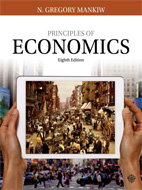
Популярные статьи
- Государственно-частное партнерство: теория и практика
- Международный форум по Партнерству Северного измерения в сфере культуры
- Мировой финансовый кризис и его влияние на Россию
- Совершенствование оценки эффективности инвестиций
- Качество и уровень жизни населения
- Фактор времени при оценке эффективности инвестиционных проектов
- Вопросы оценки видов социального эффекта при реализации инвестиционных проектов
- Государственная собственность в российской экономике - Масштаб и распределение по секторам
- Кластерный подход в стратегии инновационного развития зарубежных стран
- Перспективы социально-экономического развития России
- Теория экономических механизмов
- Особенности нового этапа инновационного развития России
- Экономический кризис в России: экспертный взгляд
- Налоговые риски
Популярные курсовые
- Учет нематериальных активов
- Потребительское кредитование
- Бухгалтерский учет - Курсовые работы
- Финансы, бухгалтерия, аудит - курсовые и дипломные работы
- Денежная система и денежный рынок
- Долгосрочное планирование на предприятии
- Диагностика кризисного состояния предприятия
- Интеграционные процессы в современном мире
- Доходы организации: их виды и классификация
- Кредитная система: место и роль в ней ЦБ и коммерческих банков
- Международные рынки капиталов
- Многофакторный анализ производительности труда
- Непрерывный трудовой стаж
- Виды и формы собственности и трансформация отношений собственности в России
- Анализ финансово-хозяйственной деятельности
Навигация по сайту
Principles of Economics - N. Gregory Mankiw |
|
Год выпуска: 2017 Автор: N. Gregory Mankiw Жанр: Экономика Формат: PDF Качество: OCR Количество страниц: 862 Описание: N. Gregory Mankiw is the Robert M. Beren Professor of Economics at Harvard University. As a student, he studied economics at Princeton University and MIT. As a teacher, he has taught macroeconomics, microeconomics, statistics, and principles of economics. He even spent one summer long ago as a sailing instructor on Long Beach Island. Professor Mankiw is a prolific writer and a regular participant in academic and policy debates. His work has been published in scholarly journals, such as the _ American Economic Review, Journal of Political Economy, and Quarterly Journal of Economics, and in more popular forums, such as the New York Times and The Wall Street Journal. He is also author of the best-selling intermediate-level textbook Macroeconomics (Worth Publishers). In addition to his teaching, research, and writing, Professor Mankiw has been a research associate of the National Bureau of Economic Research, an adviser to the Congressional Budget Office and the Federal Reserve Banks of Boston and New York, and a member of the ETS test development committee for the Advanced Placement exam in economics. From 2003 to 2005, he served as chairman of the President's Council of Economic Advisers. Economics is a study of mankind in the ordinary business of life." So wrote Alfred Marshall, the great 19th-century economist, in his textbook, Principles of Economics. We have learned much about the economy since Marshall's time, but this definition of economics is as true today as it was in 1890, when the first edition of his text was published. Contents «Principles of Economics»Introduction
How Markets Work
Markets and Welfare
The Economics of the Public Sector
Firm Behavior and the Organization of Industry
The Economics of Labor Markets
Topics for Further Study
The Data of Macroeconomics
The Real Economy in the Long Run
Money and Prices in the Long Run
The Macroeconomics of Open Economies
Short-Run Economic Fluctuations
Final Thoughts
скачать учебник: Principles of Economics - N. Gregory Mankiw
|
Популярные книги и учебники
- Экономикс - Макконнелл К.Р., Брю С.Л. - Учебник
- Бухгалтерский учет - Кондраков Н.П. - Учебник
- Капитал - Карл Маркс
- Курс микроэкономики - Нуреев Р. М. - Учебник
- Макроэкономика - Агапова Т.А. - Учебник
- Экономика предприятия - Горфинкель В.Я. - Учебник
- Финансовый менеджмент: теория и практика - Ковалев В.В. - Учебник
- Комплексный экономический анализ хозяйственной деятельности - Алексеева А.И. - Учебник
- Теория анализа хозяйственной деятельности - Савицкая Г.В. - Учебник
- Деньги, кредит, банки - Лаврушин О.И. - Экспресс-курс
Новые книги и журналы
Популярные лекции
- Шпаргалки по бухгалтерскому учету
- Шпаргалки по экономике предприятия
- Аудиолекции по экономике
- Шпаргалки по финансовому менеджменту
- Шпаргалки по мировой экономике
- Шпаргалки по аудиту
- Микроэкономика - Лекции - Тигова Т. Н.
- Шпаргалки: Финансы. Деньги. Кредит
- Шпаргалки по финансам
- Шпаргалки по анализу финансовой отчетности
- Шпаргалки по финансам и кредиту
- Шпаргалки по ценообразованию
- 50 лекций по микроэкономике - Тарасевич Л.С. - Учебное пособие
Популярные рефераты
- Коллективизация в СССР: причины, методы проведения, итоги
- Макроэкономическая политика: основные модели
- Краткосрочная финансовая политика предприятия
- Марксизм как научная теория. Условия возникновения марксизма. К. Маркс о судьбах капитализма
- История развития кредитной системы в России
- Коммерческие банки и их функции
- Лизинг
- Малые предприятия
- Классификация счетов по экономическому содержанию
- Кризис отечественной экономики
- История развития банковской системы в России
- Маржинализм и теория предельной полезности
- Кризис финансовой системы стран Азии и его влияние на Россию
- Иностранные инвестиции
- Безработица в России
- Источники формирования оборотных средств в условиях рынка


